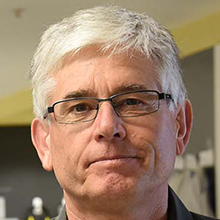NeuroValida is a breakthrough drug validation platform that assists CNS drug target discovery by utilizing adult human brain tissue microarrays, automated microscopy, and high content automated image analysis. Our aim is to work with you to accelerate CNS drug discovery and allow further validation of preclinical outcomes.


Sir Richard Faull (KNZM) is a distinguished Professor at the University of Auckland. He is a neuroscientist, Co-director of the Neurological Foundation of New Zealand Human Brain Bank and Director of the Centre for Brain Research. He has an H-index of 106 and has published 395 peer reviewed publications in the field of neuroscience which have been cited over 40,000 times (Google Scholar). Richard founded the human brain bank and has overseen the collection, processing, and characterization of brain tissue to ensure the high level of consistency and quality found in brain bank tissue. Richard has established a successful multidisciplinary laboratory studying the changes in neurodegenerative diseases in the human brain and related these changes to clinical symptom profiles.

Professor Mike Dragunow is a neuropharmacologist and neuroscientist and heads a large academic laboratory at the University of Auckland. Mike developed the human brain tissue microarray, human brain cell culture and high content analysis techniques used by Neurovalida scientists. Mike also founded and directs the Human Brain Tissue Microarray and the High Content Screening facilities at the University of Auckland and directs the Hugh Green Biobank. His research focuses on studying the causes of human brain disorders and on developing novel drug treatments for these disorders using adult human brain, tissue microarray, primary adult human brain cell cultures, molecular pharmacology, high throughput devices and high-content analysis. He is a Fellow of the Royal Society of New Zealand and has had significant biotech experience as a neuroscience consultant and Scientific Advisory Board member. Mike has an H-index of 95 and has published more than 340 peer reviewed publications which have been cited over 35,000 times (Google Scholar).

Professor Maurice Curtis is a neuroscientist and Co-director of the Neurological Foundation of New Zealand Human Brain Bank and has experience in making tissue microarrays, immunohistochemistry, brain banking, autoradiography, and cell-based assays. Maurice has published more than 115 peer reviewed publications and runs the human brain bank ensuring that high quality, genetically and neuropathologically well characterized human brain tissue is available for research. Maurice has run a large research group since 2007 focused on human brain cell migration and plasticity in the brain in response to neurodegenerative diseases. His laboratory also studies the early brain changes that occur before an individual is symptomatic for Alzheimer’s disease and Parkinson’s disease.
NeuroValida scientists focus on neurodegenerative disorders such as Alzheimer’s disease, Parkinson’s disease, Huntington’s disease and motor neuron disease, and have collaborated with various international partners. We have autopsy samples available for Alzheimer’s disease, Huntington’s disease, Parkinson’s disease, motor neuron disease, epilepsy, frontotemporal dementia and glioblastoma, and have published 100’s of research papers in leading international journals in the following areas: